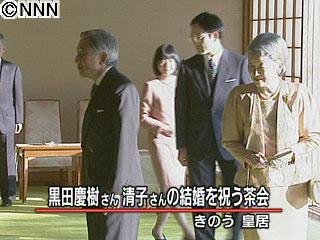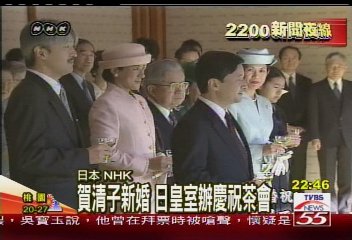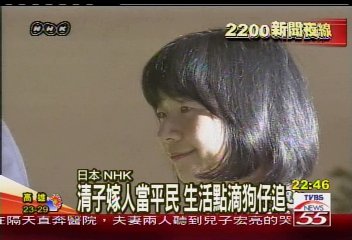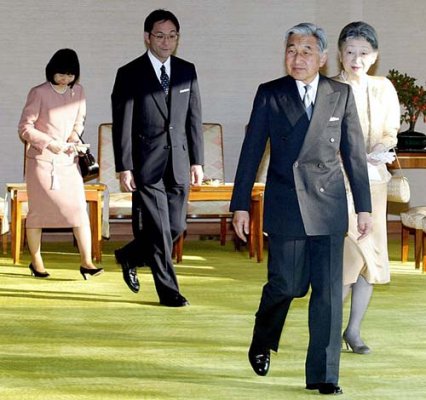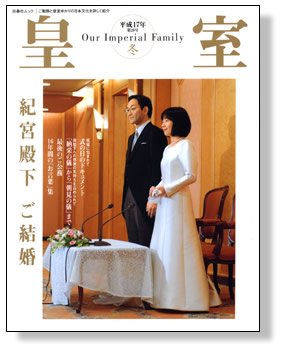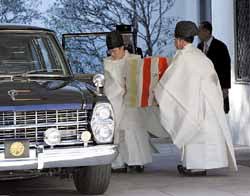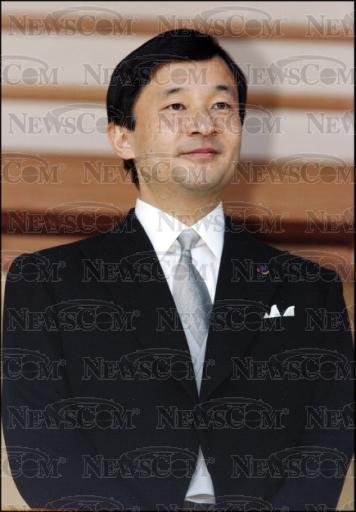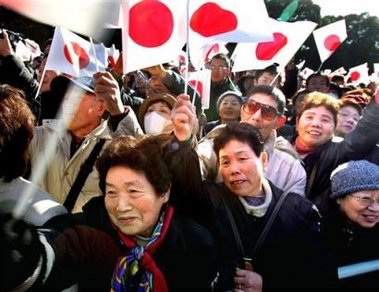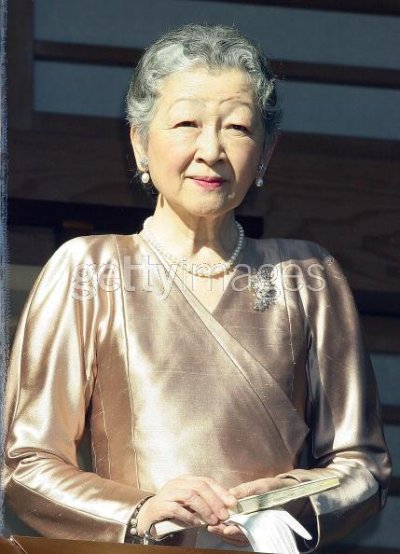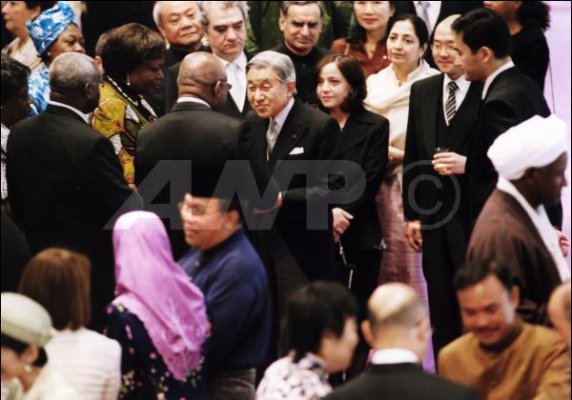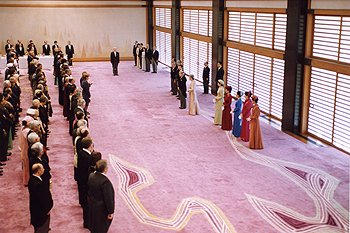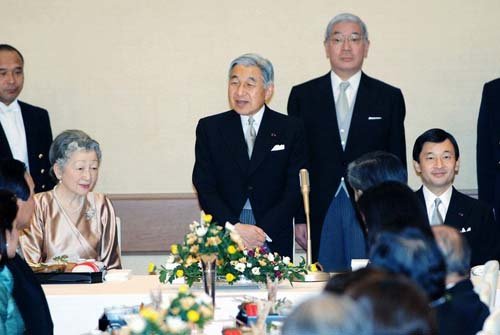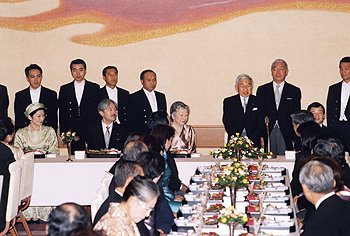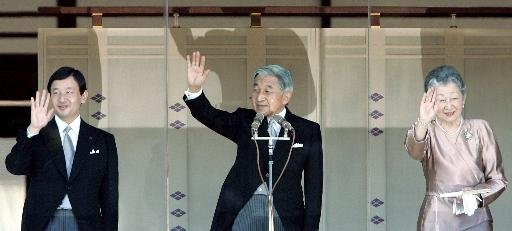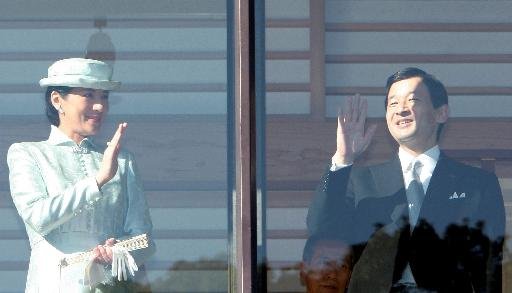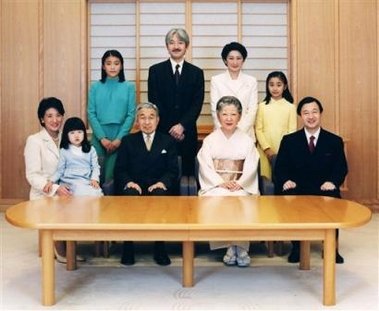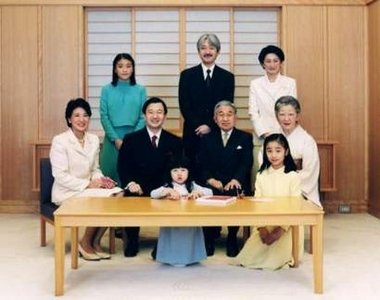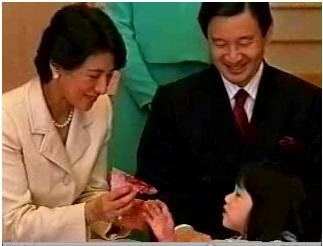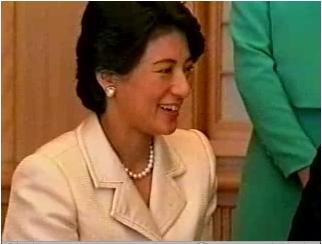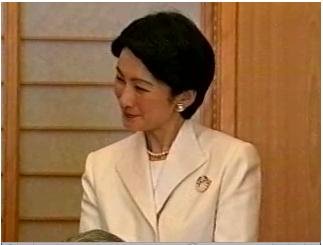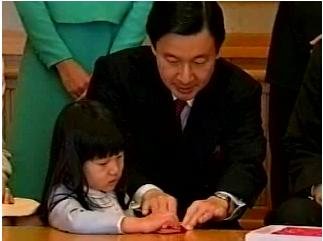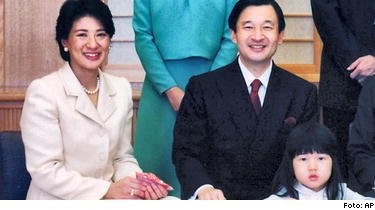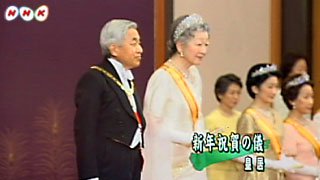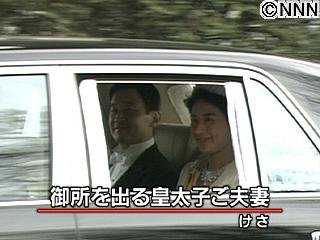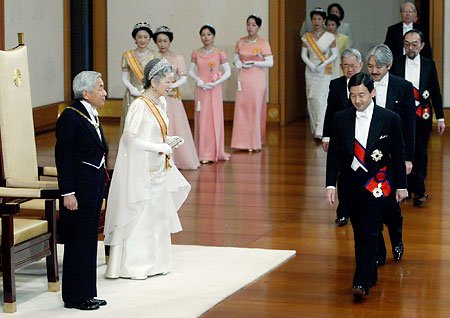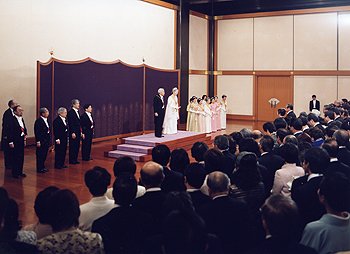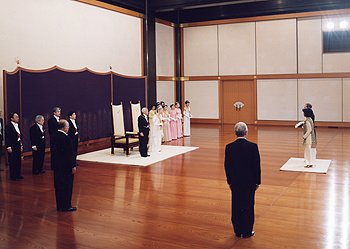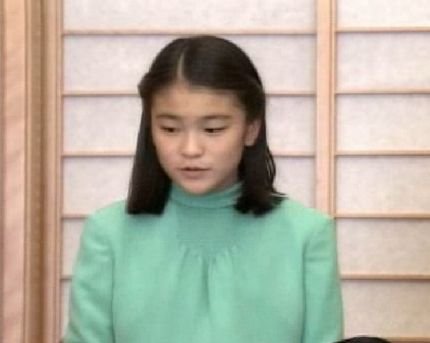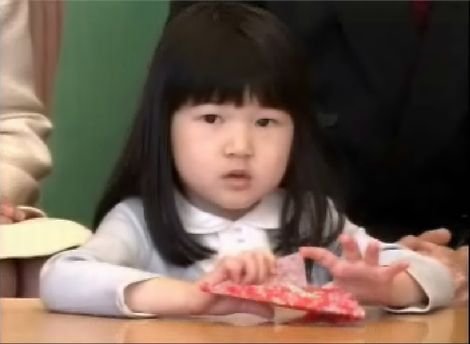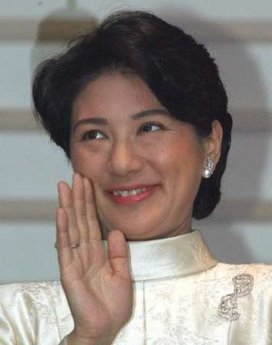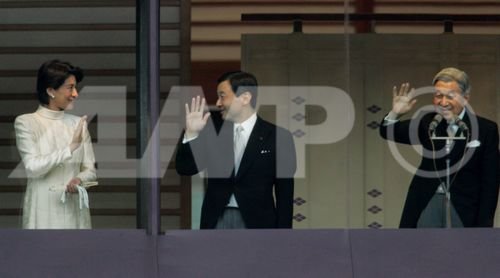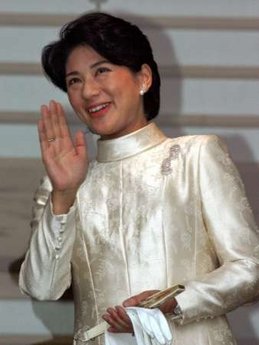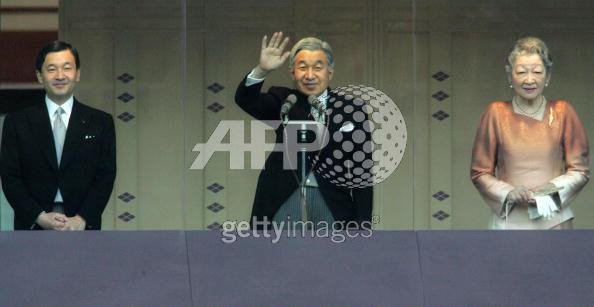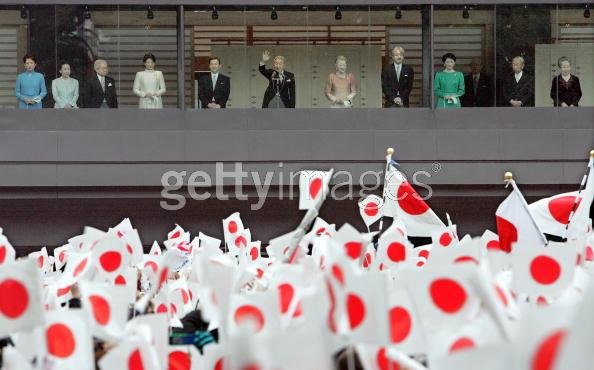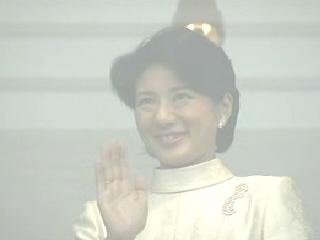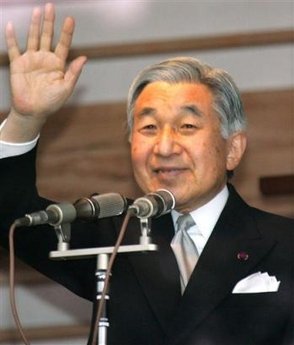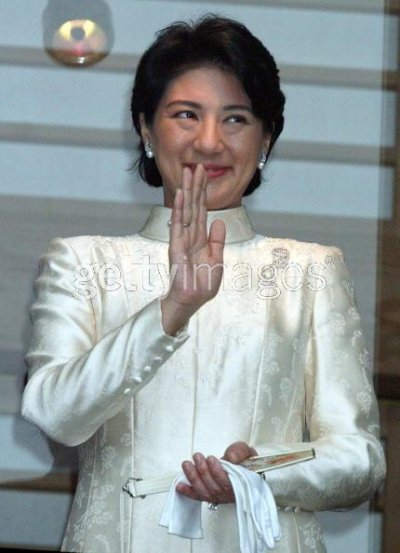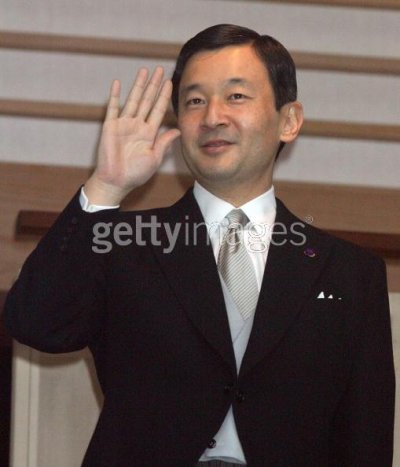Does Japan Needs Its Imperial Family
"Nothing attests more dramatically to the psychological sway of its lingering shadow than the very reluctance of today's Japanese to debate in public the pros and cons of retaining the imperial family," says Ivan Hall, a former Gakushuin University professor and author of Cartels of the Mind.
Few people -- let alone a
gaijin (foreigner) -- get to speak to the son of a living god. So on April 25 this year, I was very nervously standing in front of the Emperor and Empress in the Imperial place, hoping I wouldn't fluff any of my carefully rehearsed
keigo. The imperial couple was about to travel to Ireland and Norway and as an Irish journalist I had been granted the privilege of asking two questions.
I wanted to quiz the emperor on his opinion about the compulsory singing of the national anthem at school ceremonies. As I rose to speak, an Imperial Household Agency (IHA) official signaled to the phalanx of TV cameras at the back of the room and they stopped filming and left. "They are worried that as a foreigner you might ask something that might embarrass his majesty," said the Japanese journalist beside me.
Was this precaution necessary? Everything, from my query, submitted weeks in advance, to his majesty's written reply had been carefully scripted and vetted by IHA bureaucrats. The whole episode capped to us foreign observers a slightly farcical 60 minutes: journalists asking mostly anodyne questions about their majesties health and their impressions of Ireland and Norway before wishing them a safe trip; the sight of 40 heads leaning forward to catch the Empresses' whispered replies, which could hardly be heard by anyone in the room.
But my colleague's point was important. The presence of somebody from outside the system threatens to disrupt the carefully rehearsed dance between the Imperial Palace and the press that covers it. The problem was the IHA had no leverage over people like me: a local journalist could be kicked out of the press club or fired for asking an unscripted question in front of the cameras.
The IHA's control over their charges is legendary and, sometimes comical. Photographer Toshiaki Nakayama was banned from the imperial household after snapping Prince Akishino's new bride brushing hair out of his eyes before a formal portrait. One former Imperial House correspondent says he was once told off by bureaucrats for asking the emperor if he had recovered from a cold. "That's how much they control things: even a boring [kudaranai] question like that," says the journalist. "At least if you're a foreign journalist the Imperial Household Agency cannot harass you."
The IHA naturally denies they are all controlling. Spokesman Moriyama Yasuo claims the presence of cameras in press conferences makes their majesties 'nervous' and claims there was no question of the cameras leaving the room just because I was a foreigner. "There is a set time for camera coverage of their majesties' replies and this time simply ran out," he says, which raises the question: why was I left until last?
This rigid control and the strange institutional taboos that surround Japan's first family (see sidebar) helps explain why the emperor is the elephant in the room of Japanese politics. It is almost impossible in the mainstream media to openly debate the institution's past, its current role or most importantly its future.
So while a government-appointed panel of experts recently recommended, after months of closed-session discussion, to save the Chrysanthemum Throne from extinction by allowing a female emperor, they avoided the fundamental question: should the institution continue at all?
How much do the imperials cost? What benefits do they bring Japan? What percentage of the population supports them? These basic questions hover around the supposedly 2,600-year-old institution but are seldom openly aired in the big media or in the political arena, despite the unique opportunity offered by the succession debate..............
http://english.ohmynews.com/articleview/article_view.asp?at_code=299674




